Endometriosis
[MUSIC PLAYING]
If you have endometriosis, you may have questions. While surgery may be the most effective way to relieve symptoms of endometriosis, it's not the right choice for everyone. It's often difficult to know how to treat your endometriosis. Endometriosis specialist Dr. Laura Douglas shares three questions for you to think about.
First, where is your endometriosis located? If your lesions are widespread or deeply embedded, removing them may help relieve your symptoms. Next, are your symptoms getting better with treatment? Non-surgical treatments such as medication and hormone therapy are sometimes effective for relieving pain, heavy bleeding, and other symptoms, but if these methods haven't relieved your suffering, it may be worth considering your options for surgery.
Finally, what are your plans for pregnancy? Endometriosis can interfere with your ability to become pregnant, especially if lesions grow on or around your ovaries. If you're trying to conceive or hope to someday, Laparoscopic Surgery or Laparatomy may make it possible to leave your uterus intact and improve your chances for pregnancy in the future.
Think about your symptoms and what's most important to you, and then connect with an expert who can help create a personalized treatment plan for you. To learn more, meet our team and schedule an appointment, visit UChicagoMedicine.org/Endometriosis.
At the University of Chicago Medicine, our experts are dedicated to improving the lives of our patients with endometriosis. Our team of endometriosis specialists has decades of experience to support you through challenges and discomforts at every step along the way, including:
- Correcting or confirming your diagnosis
- Providing treatment options to relieve your pain and other symptoms
- Offering a second opinion
- Performing advanced surgical techniques
- Providing fertility treatment
Frequently Asked Questions about Endometriosis
Endometriosis is thought to affect approximately 10 percent of individuals who are of reproductive age and have a uterus. Although it involves tissue growths — called implants or lesions — that spread from one organ to others, endometriosis is not a cancerous condition.
Endometriosis symptoms vary from person to person depending on the number, location and size of the lesions. You may experience significant symptoms, or you may not be symptomatic at all.
In most cases, signs and symptoms may include:
- Pelvic pain, particularly shortly before, during or right after your period
- Heavy or abnormal vaginal bleeding during periods
- Lower back or leg pains (cramps) during periods
- Pain during sex
- Inability to conceive (infertility)
- Bladder/bowel complaints
Endometrial implants can spread to several pelvic organs, including the outside of the uterus and on or around the ovaries, fallopian tubes, bladder and intestines. In rare cases, endometrial lesions can grow elsewhere within the body, such as the liver, lungs, large bowel or rectum.
Pain, the most common symptom of endometriosis, can be the result of:
- Implants causing inflammation, which stimulates nerves and creates a sensitive pain response in the pelvis, often constant around the time of your menstrual period and increasing during intercourse
- Scarring between the pelvic organs and tissues
- Heavy vaginal bleeding, which increases inflammation and irritation around the pelvic organs
In addition to abdominal pain, inflammation in the pelvis may also cause pain in the lower back or pain during sexual intercourse.
Researchers are actively studying potential causes of endometriosis. Currently, there is a strong indication that the body’s genetic make-up may play a significant role in who develops endometriosis. This means your risk may be greater if your mother, aunt or sister has endometriosis.
Endometriosis vs. Adenomyosis
Adenomyosis and endometriosis are two different diseases. Some may refer to them as “sister” diseases because they cause similar types of lesions to grow — but in different places. Endometriosis lesions grow outside of the uterus, while adenomyosis lesions grow within the muscle wall of the uterus.
Yes. Endometriosis and adenomyosis can occur at the same time — and they often do. We often use specialized imaging such as pelvic ultrasound and MRI to evaluate your reproductive organs for endometriosis and/or signs of adenomyosis.
Meet Our Endometriosis Specialists
Schedule an appointment with a UChicago Medicine endometriosis specialist or request an online second opinion.
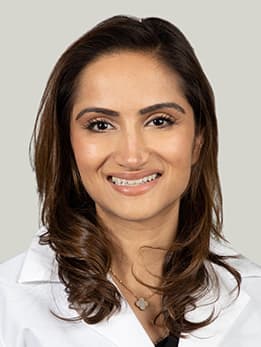
Obstetrics and Gynecology (OB/GYN)
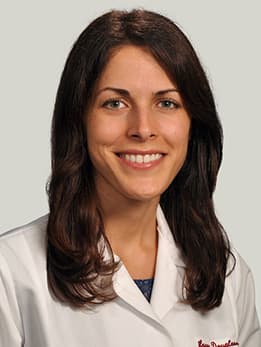
Obstetrics and Gynecology (OB/GYN)

Obstetrics and Gynecology (OB/GYN)
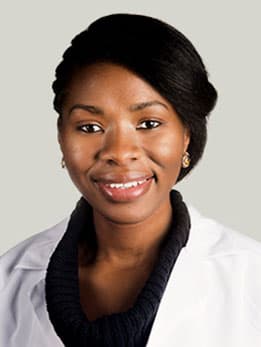
Obstetrics and Gynecology (OB/GYN)
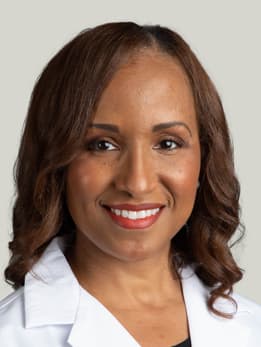
Obstetrics and Gynecology (OB/GYN)
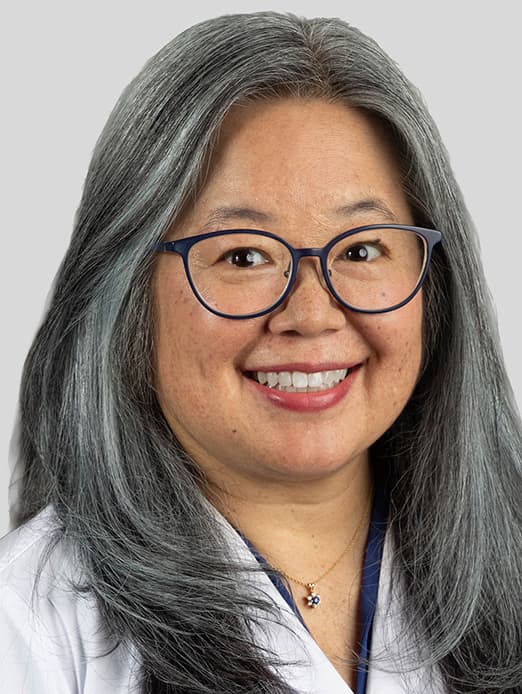
Obstetrics and Gynecology (OB/GYN)
